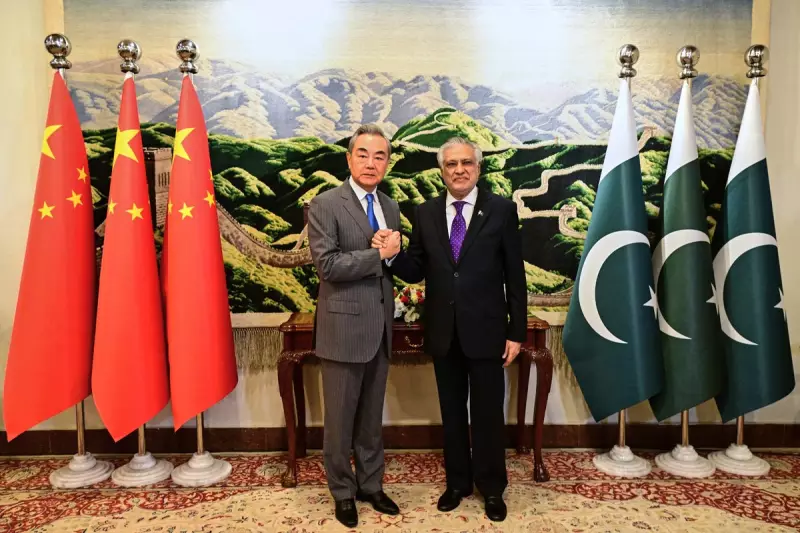
In a significant move to bolster their strategic partnership, the foreign ministers of China and Pakistan have concluded high-level talks, culminating in a firm agreement to launch a new wave of ambitious projects under the umbrella of the China-Pakistan Economic Corridor (CPEC).
The discussions, described as highly productive, focused on accelerating the development of the multi-billion-dollar corridor, a flagship project of China's vast Belt and Road Initiative (BRI). The new phase of cooperation is set to deepen economic integration and enhance regional connectivity between the two allied nations.
Deepening Strategic Ties
The meeting underscored a mutual commitment to transforming the CPEC into a model of high-quality development. Both parties emphasised their resolve to not only continue but also expand upon existing infrastructure, energy, and transport projects that form the backbone of this economic artery.
A Focus on New Initiatives
While building on established foundations, the ministers agreed to prioritise and fast-track several new initiatives. These are anticipated to include ventures in sectors such as:
- Industrial Cooperation: Establishing special economic zones to boost manufacturing.
- Science and Technology: Enhancing collaboration in IT and digital infrastructure.
- Agriculture: Modernising farming practices and improving food security.
- Socio-Economic Development: Investing in projects that directly benefit local communities.
This expanded focus aims to ensure the benefits of the corridor are widespread, fostering sustainable economic growth and stability within the region.
A Pillar of Regional Connectivity
The CPEC, which links China's western Xinjiang region to Pakistan's Gwadar Port on the Arabian Sea, is widely viewed as a crucial geostrategic endeavour. By agreeing to these new projects, both China and Pakistan are sending a strong signal about the long-term viability and importance of this partnership, reinforcing their roles as key players in Asian economics and diplomacy.





